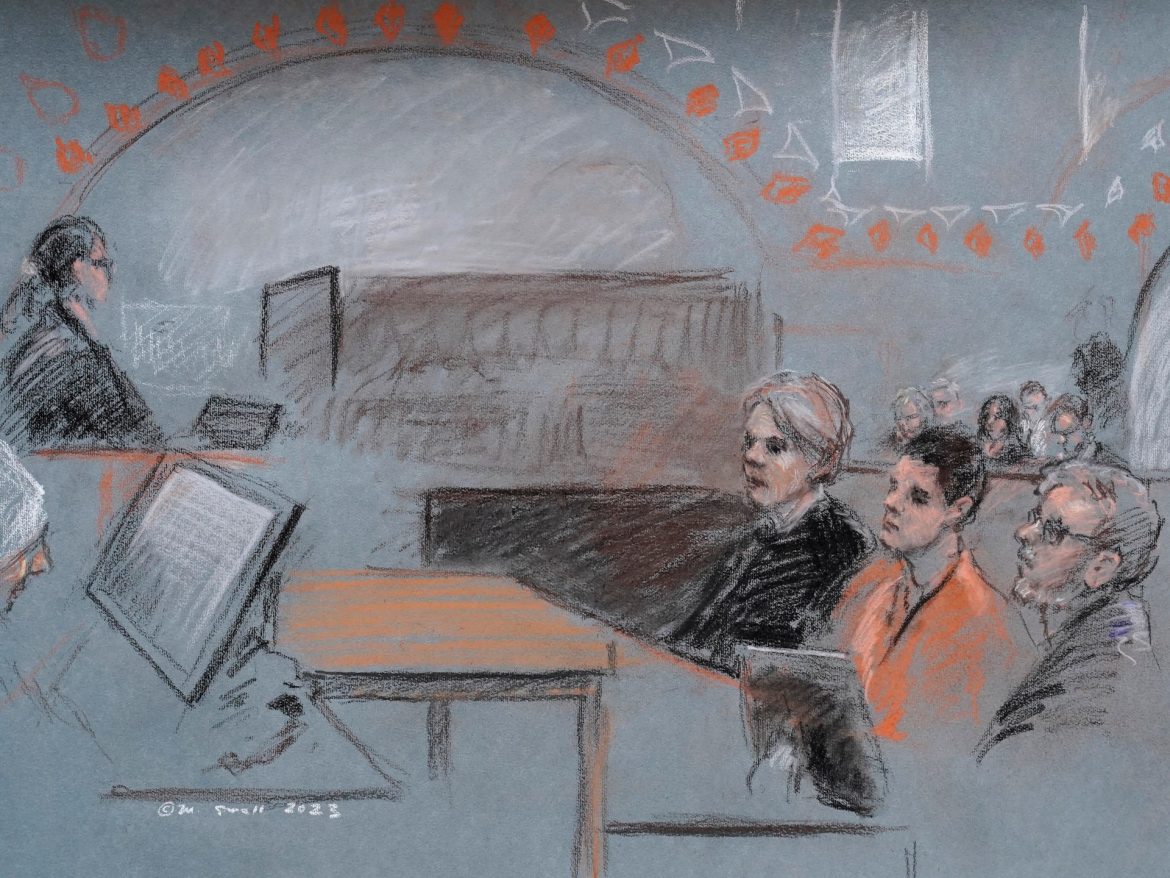A federal judge in Boston, United States, on Tuesday sentenced the 22-year-old after he pleaded guilty earlier this year to six counts of wilful retention and transmission of national defence information under the Espionage Act.
Prosecutors had argued for a 17-year sentence for Teixeira, saying he “perpetrated one of the most significant and consequential violations of the Espionage Act in American history”.
“The defendant took an oath to defend the United States and to protect its secrets – secrets that are vital to US national security and the physical safety of Americans serving overseas,” prosecutors wrote. “Teixeira violated his oath, almost every day, for over a year.”
Breach raised questions about US ability to protect secrets
Teixeira, from North Dighton, Massachusetts, was part of the 102nd Intelligence Wing at Otis Air National Guard Base, located on Cape Cod.
He worked as a cyber-transport systems specialist – essentially an information technology specialist responsible for military communications networks.
Authorities said he shared the classified documents on the messaging app Discord.
Teixeira began by typing out copies that he then published online.
Later, he photographed the files, some of which bore “SECRET” and “TOP SECRET” markings.
The documents included information about allies and adversaries including troop movements in Ukraine and top secret information about Israel’s Mossad spy agency. Teixeira also admitted posting information about a US adversary’s plans to harm US forces serving overseas.
The breach raised questions about the US’s ability to protect its secrets and embarrassed the administration of President Joe Biden, which scrambled to contain the diplomatic and military fallout.
Teixeira’s lawyers asked for a lighter sentence of 11 years, arguing their client had no political goal and was not working as a spy for a foreign government. In their sentencing document, they acknowledged their client had “made a terrible decision which he repeated over 14 months”.
“Instead, his intent was to educate his friends about world events to make certain they were not misled by misinformation,” the lawyers wrote.
“To Jack, the Ukraine war was his generation’s World War II or Iraq, and he needed someone to share the experience with.”
They noted that Teixeira had never been convicted of a crime before.
But prosecutors countered that Teixeira did not suffer from any intellectual disability that would prevent him from knowing right from wrong, adding that his post-arrest diagnosis of “mild, high-functioning” autism was of “questionable relevance” to the case.
‘I wanted to say, ‘I am sorry”
Teixeira apologised to the court for his actions before he was sentenced by the US District Judge Indira Talwani.
“I wanted to say, ‘I’m sorry for all the harm that I brought and caused’,” Texeira said referring to the “maelstrom” he caused family and friends.
“I understand all the responsibility and consequences fall upon my shoulders alone and accept whatever that will bring,” he said. Teixeira hugged one of his lawyers and looked towards his family and smiled before being led out of court.
He cannot be charged with any further Espionage Act violations under the terms of his guilty plea.
